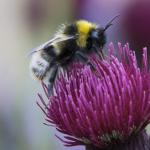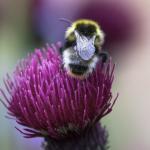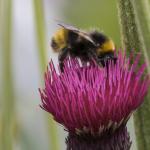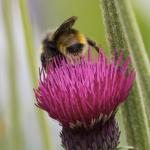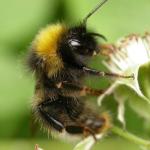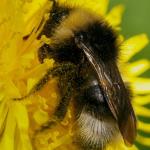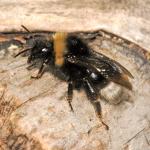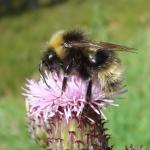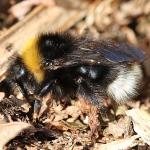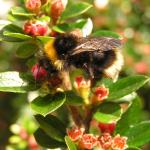Brasiliensis (Smith, 1854[Apathus]) nec Lepeletier, [1835]:470 (= B. brasiliensis Lepeletier); Bombus citrinus (Schmiedeknecht, 1883)
For details see Williams Bumblebees of the World
Keys and general biology are found in Sladen (1912), Free & Butler (1959), Alford (1975) and Prŷs-Jones & Corbet (1991). Until recently this species was known as Psithyrus sylvestris, but Psithyrus has now been reduced to a sub-genus within Bombus. The bee bears little clear resemblance to any of its probable host species in the Bombus pratorum group.
This species is distributed widely throughout most of the area covered by this Atlas, but is rarely common. There are no records from Ireland. It is widespread in Europe; middle and northern latitudes of Asia, eastwards to Kamchatka and Korea (Løken 1973).
This bee is not regarded as being scarce or threatened.
This cuckoo-bee occurs in a wide variety of habitats.
Over-wintered females can be found from late March onwards, males and new females in July to September. It is probable that this species has two generations in areas where its major host, Bombus pratorum, is bivoltine.
During spring the over-wintered and fertilised female B. sylvestris searches for a small nest of the host bumblebee, B. pratorum. It enters the nest and eventually dominates or kills the host queen. The parasite female then lays eggs which will develop into either males or females of B. sylvestris. All foraging and nest duties are carried out by the host workers. It is likely that this species will also attack other species in the B. pratorum group, e.g. B. jonellus and B. monticola.
Visits are made to a wide variety of flowers.
None specifically recorded in Britain or Ireland.


